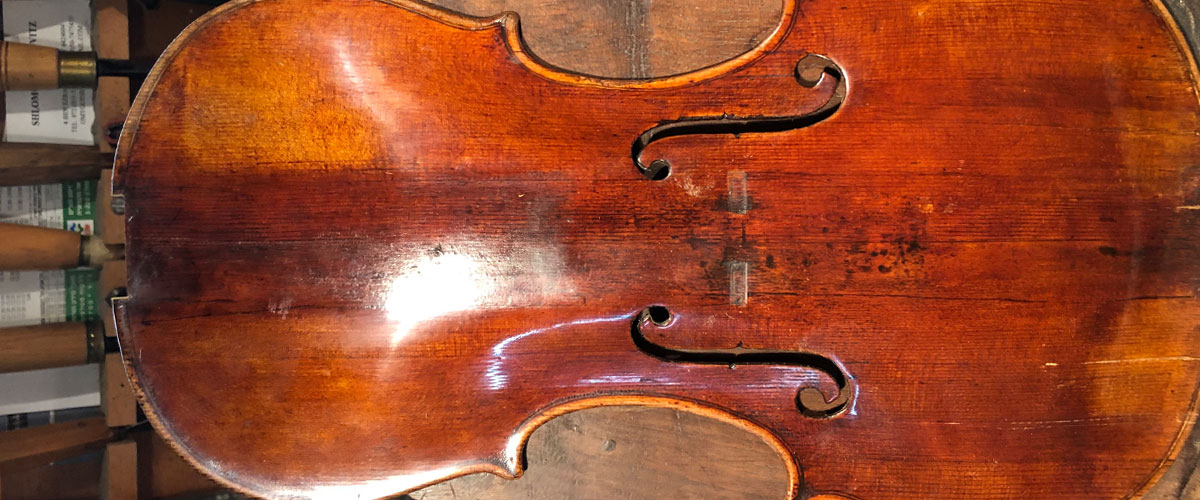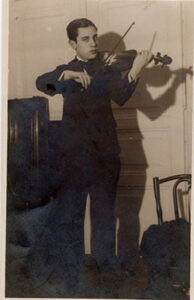Questions about Violins of Hope?
Email us at gh@jccchicago.org or call 847.763.3507.
Max Beker was born to a family with a long standing musical tradition in Vilna, then Poland. His grandfather was the conductor of the Czar’s brass band and he played with both his father and brother to help support the family.


Max Becker Playing
Max was drafted to the Polish army early in 1939, but when war broke out he had no chance to fight and became a POW (Prisoner of War) on September 18. Jewish prisoners were soon separated from others and sent to hard labor duties in mines, breaking stones and such. Max ended up in Stalag VIIIA near Silesia, alongside with thousands of French and other prisoners.
His fate improved when his Vilna mates (63 of them!) managed to gather some money and ask an Austrian guard to buy a violin for Max, who became a member of the camp orchestra. When liberated by American soldiers, Max met his wife Fannia, a pianist who survived the camp in Dachau with her sister Henia, a singer, both from a famous musical family in Vilna. Upon learning that his entire family in Vilna was killed, including his parents and six siblings, Max joined a Displaced Persons Camp in St. Ottlilien, where an orchestra of survivors was established. In 1948 it was Leonard Berenstein who conduced it, giving survivors a feeling of dignity and hope.
The story of Max Beker is described in detail in his daughter’s book: Symphony